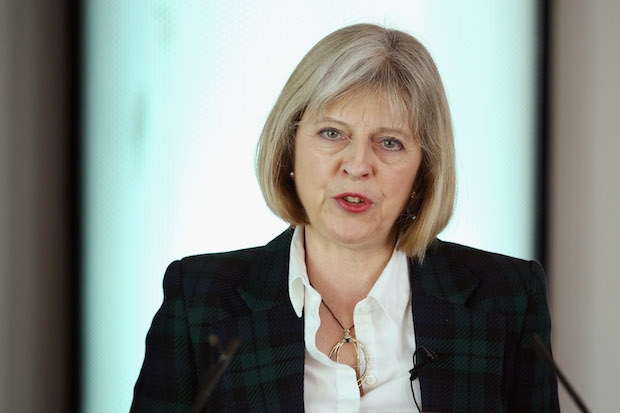Theresa May will announce changes the Mental Health Act this week that mean mentally ill teenagers are never held in police cells when they should be in a hospital bed. As I reveal in The Times this morning, the Home Secretary will on Thursday publish a review of sections 135 and 136 of the Act which allow police to ‘section’ someone in mental distress in public or private places so that sick children cannot be taken to a cell, and adults are only detained there if their extreme behaviour cannot be managed elsewhere.
It may come as a surprise that this happens at all, but last year 236 under-18s ended up in cells when they should have been in hospital. This number fluctuates a little from year to year – it was down from 263 the previous year – but a couple of hundred children are being locked up generally because there are no beds for them. Various reports and ministers have condemned the practice, and various people have offered solutions, but to this point, nothing more has happened.
May has decided that this shouldn’t be tolerated at all, and that she should do everything from a Home Office point of view to stop it, even if the NHS still needs to get its act together to improve child and adolescent mental health services. The police do not want to lock children up, and the amended legislation will prevent cells being used at all. The Home Office is confident that it can end the practice because of a number of reforms that are already in place, including street triage teams, which have reduced the need for detentions under sections 135/6 already. The code of practice on sectioning people will also change so that healthcare professionals are given new guidelines on avoiding police detention. Police will be required to consult a suitable health professional before detaining someone under s136, if it is possible to do so. And Whitehall sources say the change will be cost neutral because of the savings to the police in not having to lock up and look after sick youngsters.
This is another example of May’s moral mission, a quieter version of the mission that some of her colleagues trumpet, but a determined and important one nonetheless. In choosing to end police detention of mentally ill children, she is changing a policy because it is right to do so, rather than because it will change the Tories’ electoral appeal. Lynton Crosby is hardly likely to use this change as part of his key set of messages to voters. It is simply something that should not be happening that someone needed to stop.
The same goes for May’s reforms to stop-and-search, which she fought Number 10 over. Downing Street was worried that changing police powers to search people would make them appear soft on crime. May was worried that the powers were being used inappropriately and contributing to public mistrust in the police, particularly among ethnic minority communities. She sort of won, in that the reforms were introduced on a voluntary basis, which looked at the time like a compromise. But all 43 police forces in England and Wales have now signed up to Better Use of Stop and Search, and the British Transport Police, which was not supposed to be covered by the scheme, asked to join it.
May can only do so much on mental health given she is Home Secretary, not Health Secretary. But unlike some of her colleagues who spend a lot of time saying detention in cells is a bad thing, she has taken the first step in stopping this happening. As I explain here, those sick children will still need somewhere to go even though the terrifying option of a night in the cells in severe distress has been removed. So now the NHS must do something about this. And given the NHS England board meeting where Simon Stevens and colleagues will discuss what to do with George Osborne’s extra £2bn takes place on Wednesday, the day before May’s review is published, this week could see a huge change in the way sick children are looked after by the police and health service.







Comments